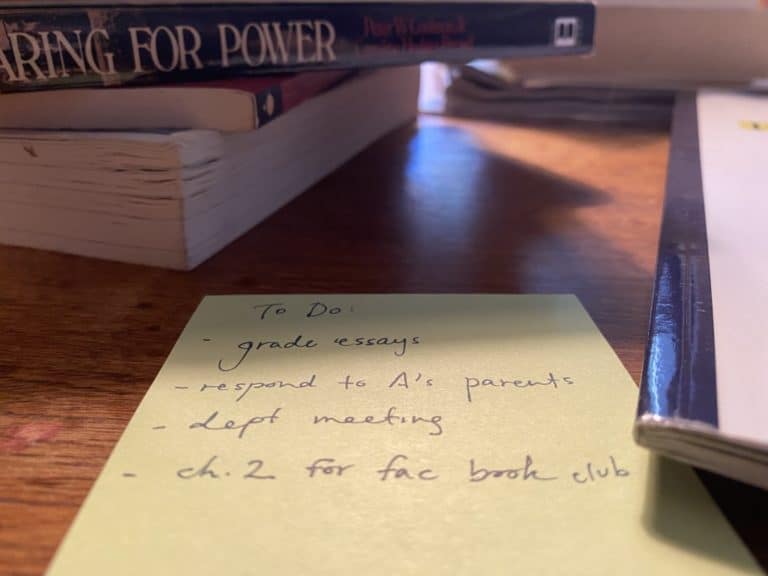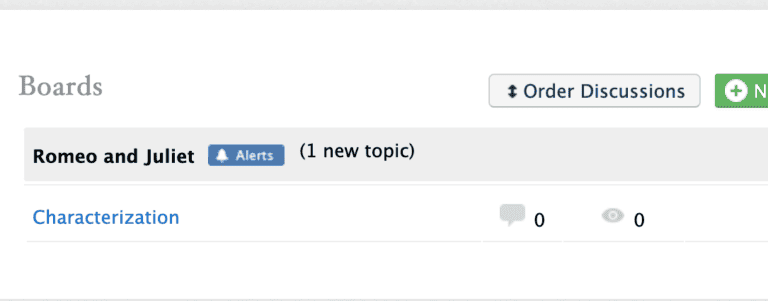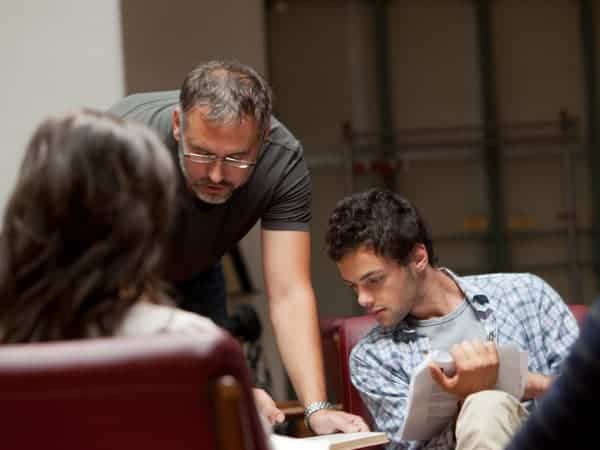Teaching Face-to-Face Communication Skills as Preventative Care
Every teacher of young people today knows that, in many cases, the kids are not alright. Anxiety and depression are at an all-time high, cancel culture runs rampant, and many young people spend more time conversing on-screen than they do in-person.
As educators, what can we do? How can we arm students with the skills they need not just to survive in the world, but thrive in it?
In our view, teaching face-to-face communication skills can serve as preventative care for the youth mental health epidemic. What follows is an excerpt from our whitepaper on the subject. This school year, we hope you’ll consider infusing these important learning and life skills into your classroom.
The macro factors contributing to teenagers’ unhappiness — i.e., post-pandemic isolation and anxiety, the prevalence of social media, heightened screen time, etc. — are unlikely to fade any time soon. That means adults need to find a form of preventative care for screen-bound, conversation-resistant teens.
Schools can be incubators of foundational, relational skill development if they arm teachers with the tools they need to instruct students in how and why to have comprehensive, compassionate, respectful, and dynamic face-to-face conversations.
According to Authentic Connections co-founder Nina Kumar, “resilience (or doing well despite stress) rests on relationships, so if we want kids to learn well, we need to make sure that they feel supported.”
Teachers have a unique opportunity to support their students with face-to-face interactions and conversations that happen every day. What’s more, when they’re given the tools they need, they have the ability to teach students the communications skills they need to strengthen relationships and develop resilience in other areas of their lives.
The thing that we hear most often is that in schools, aspects of relationships that are negative have a stronger impact than the positive ones. Feeling embarrassed, for example, has a bigger impact than hearing positive things, even though many teachers and schools work so hard on giving kids emotional support.
Nina Kumar, Authentic Connections
At R.E.A.L.®, our foundational belief is that the face-to-face communication skills Gen Z students lack can be taught – and that teaching them can make a difference.
In our work, we have found that face-to-face communication skills are teachable – and students feel relief and confidence in learning them.
At one school, for example, we found that 50% of self-described introverts did not feel comfortable asking a question in class. After three R.E.A.L.® discussions, 88% of those students had gained that confidence. After six, 100% of introverts were comfortable asking questions.
I have social anxiety, but now I feel safe when I have something to say to my class.
9th grade student
In another school, we noticed that students felt comfortable speaking up when they agreed with one another…but found disagreeing frightening. Over the course of six R.E.A.L.® discussions, we saw a 37 point increase in the number of students who reported that disagreeing in class was not scary.
I think that having the ability to ask and clarify what people mean is very helpful in real life. Instead of just listening to the person, confused but scared to ask what they mean, you can just ask and then they will explain and it will be very helpful.
7th grade student
In our view, training teachers to teach these skills is no longer just about enhancing class discussions. Rather, it’s a form of preventative care.
This post-pandemic moment in time presents a unique opportunity to change the way we think about foundational skills like conversation, the role schools play in establishing these skills, and the support teachers need to provide necessary instruction. In his book From Reopen to Reinvent, education strategist Michael Horn makes the claim that the traditional educational model doesn’t work for today’s learners or teachers – and encourages schools to innovate their educational practices with a renewed focus on human relationships.
Schools can implement important tools to help encourage the development of foundational relational skills, like peer counseling programs and policies that discourage or restrict phone usage. They can also offer teachers the tools and frameworks they need to make a difference in students’ abilities to converse and communicate in the classroom.
Schools can train teachers in communication skills instruction, so their students can learn how to speak up, how to disagree respectfully, how to gain confidence in their own voices, and how to listen. Only once teens know how to do these things can we expect them to use these skills in and outside the classroom – with their friends, their families, and adults whom they trust and to whom they turn for help.
“As educators, perhaps our most important role right now is spending in-person time with a generation in crisis, being human-centered in a tech-centric world,” says R.E.A.L.® founder Liza Garonzik. “How can we make sure that every minute matters? How can we make sure that every child feels seen and heard in every class? That level of care — and emphasis on the power of face-to-face communication — won’t solve the mental health crisis, but it can help build the relational skills that are foundational to wellbeing.”
When we look at our entire society, teachers are probably the people who are spending the most off-screen time with adolescents of everyone in the population. At a very large scale, what kind of training should they have? In the same way a teacher has to be CPR-certified, shouldn’t they have some kind of training in how to help kids develop communication skills they need — for learning and life?”
Liza Garonzik
Learn more about how discussion skills can help serve as antidote to the teen mental health crisis by reading our whitepaper.





